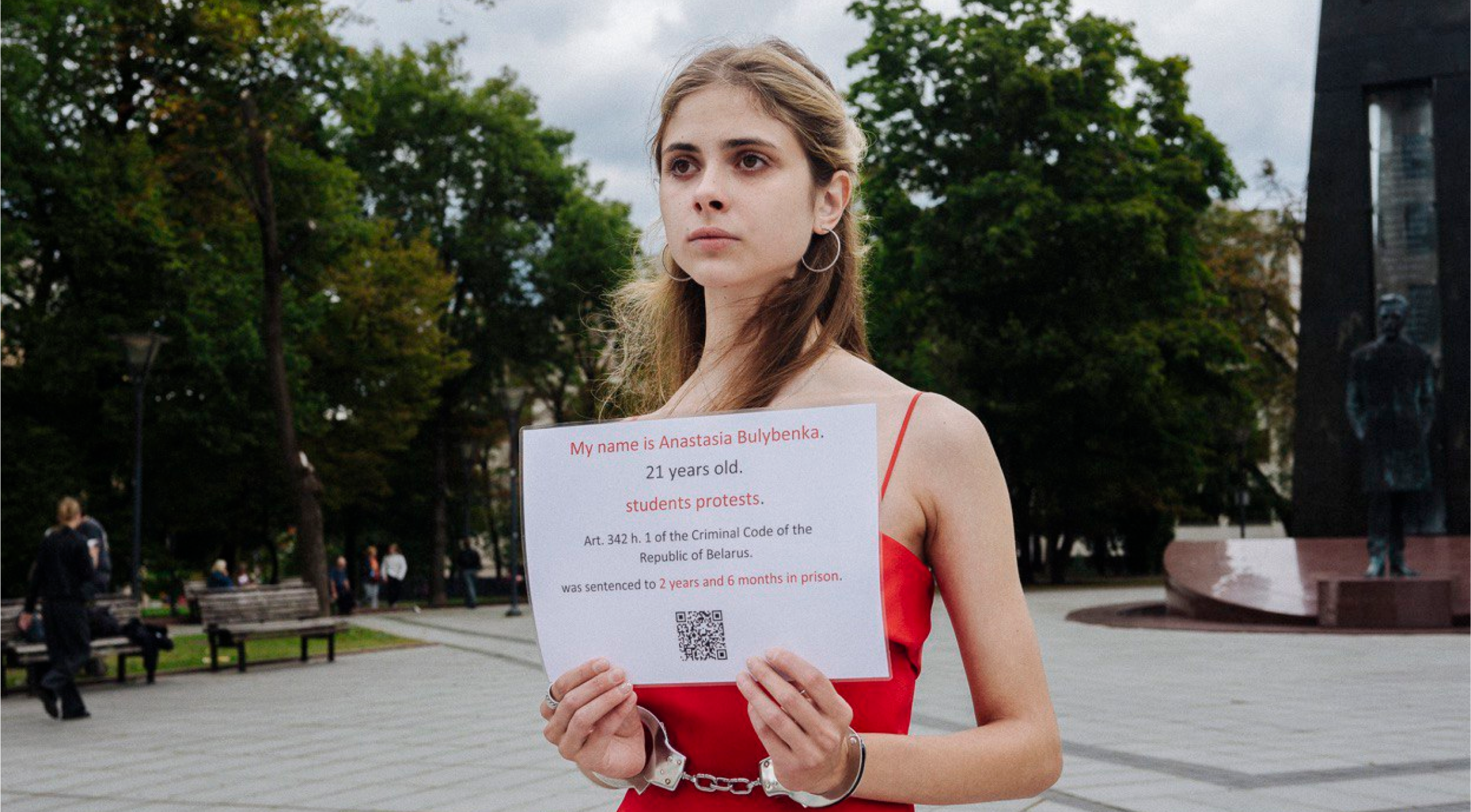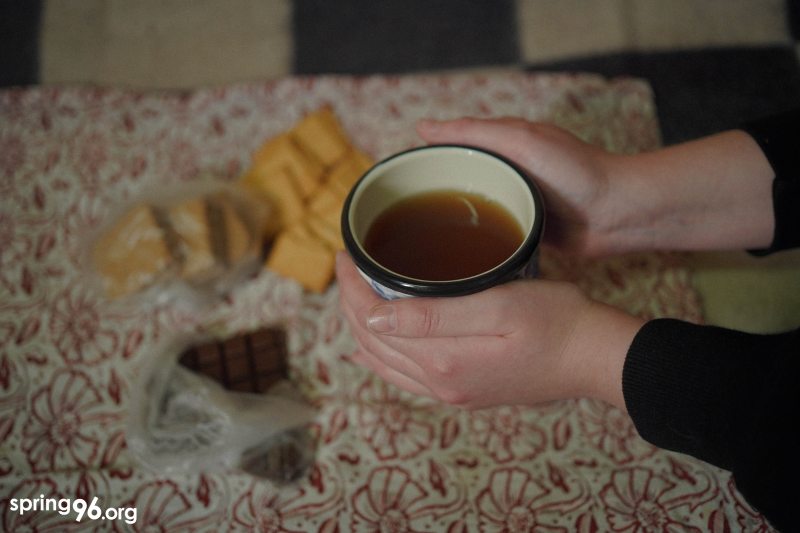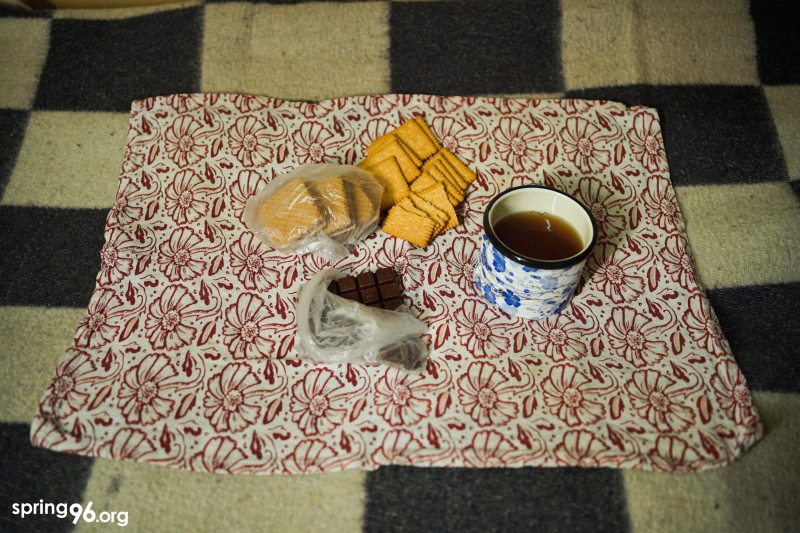"I thought that if I fell asleep, I would wake up in a cell again." Ex-political prisoners on their psychological state on both sides of the bars
Due to the persecutions that swept Belarus after the protests in 2020, many of us faced psychological problems of various kinds. This was especially true for those who went through deprivation or restriction of freedom. Many political prisoners face them during their imprisonment, and psychological adaptation after their release is another ordeal that they must cope with.
Former political prisoners told Viasna about their mental health during their imprisonment, how they supported themselves behind bars, and how they recover after their release. Asia Bulybenka, a defendant in the student case sentenced to two and a half years in prison, who was released from the women's colony a year and a half ago, and former political prisoner Alina (name changed for security reasons), who was released in the courtroom in April this year after almost two months in custody in Žodzina prison, shared their stories.

- Asia Bulybenka at a one-person picket in Vilnius in 2023
"Some kind of defense system has turn on in me."
The defendant in the student case Asia Bulybenka, who served her entire term of two and a half years in a colony. She shares that in 2020–2022, it was difficult for her to assess her psychological state during her imprisonment.
"When my body was in such a stressful situation, some kind of defense system has turn on in me. But it wasn't easy. In the pre-trial detention center, it seemed to me that we were about to be released and I was waiting for this all the time. Then I spaced out a little and tried to treat everything as an adventure. At some point, I started drinking sedatives in quite large quantities, so I felt more or less normal. I had a couple of breakdowns in the pre-trial detention center when I had very realistic dreams about my mother. I got sick, I had a very high fever, I dreamed that I was with my mother, but when I woke up, I saw that I was in jail, and I had a very bad breakdown.
I didn't take any sedatives in the colony. I think it was a defensive mechanism. I just lived. I turned off my head and did what needed to be done. My worst psychological state was after the first long meeting. If they asked me about the best day in the colony, it would be the first long meeting, and if they asked me about the worst moment, it would be the end of that long meeting. I readjusted myself and lived on autopilot, and when I met Mom, I felt like a human being. I was in my clothes, I ate what I wanted and ate with a fork. It was very scary to leave after that meeting. I was just torn apart from the inside. I didn't understand why I had to go back... It was very difficult psychologically."
"I thought that if I fell asleep, I would wake up in a cell again"
Five months after her release, Asia was arrested for 30 days, which she spent at Akrescina. The former political prisoner says that it was that administrative arrest that played a bad role in her psychological adaptation to freedom.
"After leaving the colony, I turned to a psychologist. But I had one session and decided that everything was fine with me. Then I just lived my life. After a couple of months, I started having problems with appetite and sleep (insomnia, nightmares). Then I visited a psychiatrist and was prescribed antidepressants. I didn't take them because I didn't think anything bad was happening to me. But when I was put to Akrescina for 30 days, that was awful... My psyche couldn't stand it anymore...
After my second release and when I was already in Vilnius, it began to seem to me that I was in prison. It was a terrible and incomprehensible feeling. No one could help me. This feeling was not present 24/7, but came at times. It was depersonalization [the feeling of losing one's self, losing touch with reality; surrounding events seem unreal, as if a person is watching their life from aside]. It began to seem to me that I was dreaming, that I was in a glitch and was still in prison. I could stay up for two nights. I was just afraid to fall asleep, because when I fell asleep, I had nightmares about prison. I thought that if I fell asleep, I would wake up in a cell again. It lasted about a month. As I understand it now, it was a very dangerous condition.
It all ended with my suicide attempt when I took 70 antidepressant pills and then appeared in intensive care. Then I was diagnosed with post-traumatic stress disorder (PTSD), because when the ambulance and the police came for me in Vilnius, I thought they would take me to Belarus. I just didn't think. I didn't want to go with them, I cried, screamed, asked them not to take me to Belarus, but they didn't understand anything. I stayed in the hospital for about six days. That's when I started taking the right medications and working with a psychiatrist. At the moment, I am taking three medications: sleeping pills, antidepressants, and psychotropic drugs that reduce anxiety. A year after this story, I still can't sleep without sleeping pills. For the first six months, I had nightmares every night. At some point, I stopped perceiving them as nightmares. I constantly dreamed of prison, war, the KGB. All these subjects in different guises.
The two-year imprisonment and the last 30 days arrest have not gone away in a year. I still have a lot of therapy ahead of me. It is important to understand that nothing ends after the imprisonment. People need help, supervision, mentoring. It is a big mistake to think that when a person is released, everything is fine with them, that everything is over. No. After the release, the next stage begins, and it goes differently for everyone. A lot of girls I know from the Homieĺ women's colony later seek psychological help and start taking medicines."
"In such stressful circumstances, the psyche releases the power that I have never seen myself."

- Illustrative photo spring96.org
For participating in the post-election protests, Alina spent almost two months in detention: in the temporary detention facility at Akrescina, Žodzina prison, and the pre-trial detention center at Valadarskaha. In April this year she was sentenced to home confinement. The former political prisoner recalls her psychological state a few months ago:
"Even before my incarceration, my mental health was not the best, and it seemed to me that I wouldn't bear a single day. But when I was driven to Akrescina, I told myself that I could go through with it. Of course, during my imprisonment I cried a lot. I did not understand what would happen next, but in such stressful circumstances, the psyche seems to shrink and release the power that I have never seen myself.
There was a place for jokes and smiles, and for moments of absolute despair. At Akrescina, I has thoughts that I did not want to live anymore, because it was too cold and unbearable. But without noticing it, I pulled myself together, returned to reality and thought that someone and something was waiting for me. It was terrible in Žodzina when I imagined my trial. What will happen there? What if they don't let me go home? Of course, I was surprised that, despite the conditions, torture, and strict rules, it is possible to preserve freedom. After all, freedom is not on the outside, but in the soul. It actually got mixed up with despair there, but now it feels different.
At some moments, the psyche makes the brain turn off, and you watch everything as if it's not happening to you, but you're a witness."
"I pulled out my favorite letters and photos from the folder as my emergency kit"
Alina says that letters and photographs, as well as memories from her free life, which she shared with her cellmates, helped to support herself psychologically:
"We have always used the expression: "in the former life," after which we told something about our lives, some warm moments. There was a lack of kind, funny, visually beautiful things. We remembered how each of us went somewhere and traveled. We told each other some stories, even retold books and movies to hold on somehow. We imitated ordinary life.
When I received photos together with letters, I was the happiest person in the world. They were made in my native places. And I have many fond memories associated with them. I always cried because of these photos, but it made me hold on. I saw my friends, my loved one, the life I had, and I realized that I had no moral right to come apart. I knew that I was waited for, and only the best was ahead.
I put my favorite letters and photographs in a separate envelope and pulled them out of the folder with other letters as my emergency kit when I felt really bad and needed to cry to calm down.
And, the girls and I also agreed to go for walks and exercise every day, because physical health greatly affects morale. To be honest, I always cried in the yard for walking because it was terrible and seemed to remind me as much as possible that I was in prison. But then somehow I calmed down and tried to space out, to think about my own things and talk to the girls."
"I was both afraid to leave the house and stay there."
Alina recalls that the most difficult time was after the release. Until the woman left the country, she did not feel safe.
"I understood that even if I was released then, the persecution would not end. I wasn't paranoid when I was doing my time, because I was already there and what else did I have to lose? There was no point in being paranoid anymore. Even in prison, I thought that everything might not end with my release in court.
When I was released (a relative freedom, because home confinement is not freedom at all), my head was filled with thoughts: "What will happen if they [the security forces] come again?" I understood that they were free to initiate a new criminal case against me. That's why I stayed at home in fear. Maybe it was irrational, but I was both afraid to leave the house and stay there. Besides, I was afraid to take my phone with me so that I wouldn't be tracked. But it was also scary to get detained and not be able to let my parents know where I was and what had happened to me.
After my release, I didn't go anywhere far from home at all: I haven't been to the city center. When I did leave my house for a few minutes, I looked at every car. I was afraid that there were the employees of the Main Directorate for Combating Organized Crime and Corruption or disguised investigators. It was very difficult to get rid of it, almost impossible. If people are under home confinement in this condition, then only a specialist can help them. When I left and was safe, I got rid of this feeling, but if I had stayed in Belarus, I would have started having serious mental problems."

"They are trying to do everything to wipe the smile off your face forever"
"I've done my job, now treat me"
The former political prisoner admits that the process of psychological recovery is ahead and that recovering from two months of imprisonment and stress takes a lot more time:
"It was only after my release that I began to feel how imprisonment affected me. At first, it was as if I didn't know how to feel. I only knew that I didn't want to talk to anyone or see anyone or go somewhere. I didn't even want to get out of bed. At that moment, my loved one was not around, and in prison I just kept thinking that we would definitely be together. We are together now, and I feel much better, but I understand that I cannot do without a psychologist. All this time, I had mood swings from "everything is rotten" to "the best day of my life." And even in safety, this sometimes happens. The psyche no longer perceives threats and allows itself to relax. As if it's collapsed and said: ”I've done my job, now treat me." But I've coped with worse things!"
This year, the Viasna Human Rights Center has identified the right to health and medical care in detention as the theme of the Day of Solidarity with Political Prisoners in Belarus. During the week, we will share materials on this topic.
Read how to join the Day of Political Prisoners here:

"The main thing is to save your health." May 21 is the Day of Political Prisoners

















